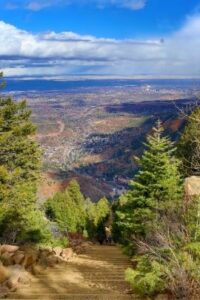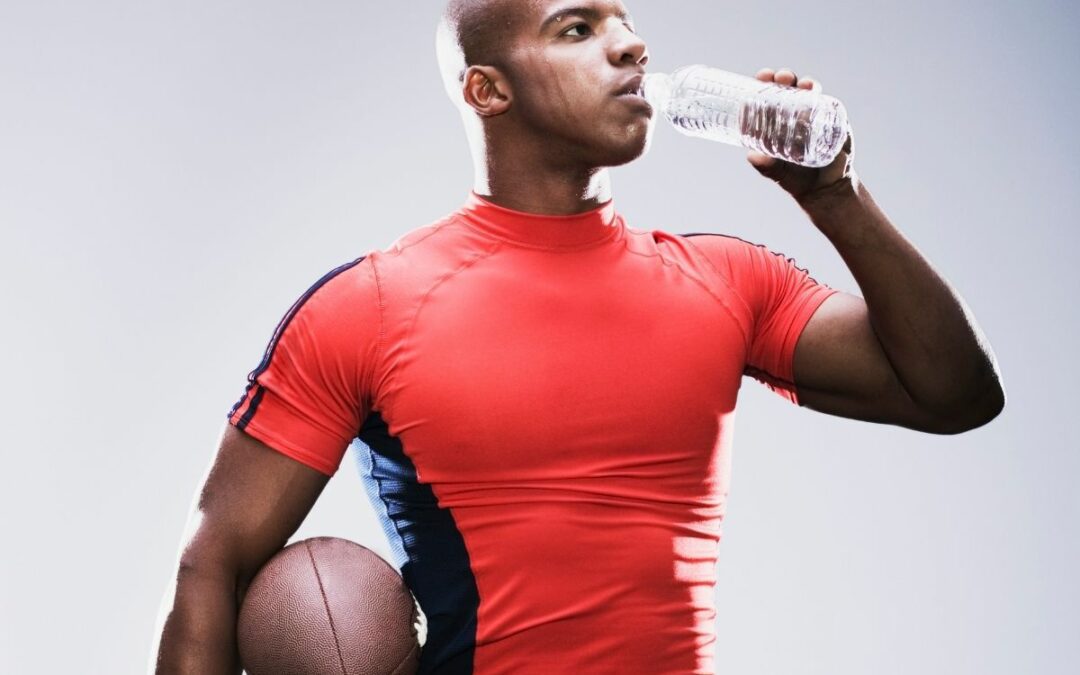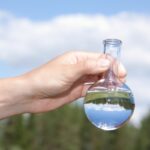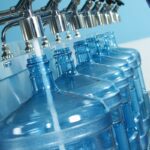Colorado fitness enthusiasts have been debating water vs sports drinks for hydration as far back as Gatorade made its debut in 1967. Which is better for your exercise hydration needs will depend on several factors, including how intense the workout is and your daily nutrition and other health concerns.
But first:
What Happens To Your Body When You Sweat?
As you may know, water plays a crucial role in how well our bodies function. It lubricates our joints and keeps tissues, including the eyes, nose and mouth, moist. Water helps to regulate body temperature, moves oxygen and nutrients throughout the body, and carries away toxins and waste. Dehydration affects our bodies in many negative ways so adequate hydration before, during and after are vital to keeping us going.
That salty sweat you work up during an intense game of basketball or a 10K race? That’s your body flushing out waste products, but it’s also eliminating the electrolytes that your body needs to maintain optimal hydration during and after exercise. (Electrolytes consist of sodium, potassium and other minerals necessary to keep your body functioning correctly.)
Besides urination, we lose water through our skin and lungs, so when you’re sweating and breathing heavily during exercise, you need to replace the water and the electrolytes. The balance of minerals and carbohydrates in the blood directly affects how well the body absorbs the water to bring it to the heart, lungs and other organs.
When that balance is off, your body will either retain too much water (making you bloated) or shed water too quickly (resulting in dehydration).
Neither of those conditions is favorable to beneficial or enjoyable exercise. Water doesn’t do any good when it’s not circulating through the body or when it runs straight through. Research shows that dehydration negatively affects performance, but you already know that if you exercise regularly.
Water vs Sports Drinks: Deciding Factors
The debate on water vs sports drinks comes down to your level of exercise, dietary restrictions, and general preferences.
Sports drinks are marketed to consumers as a way to quench thirst, replace lost electrolytes and boost or restore energy, all things water can’t do all by itself. That doesn’t mean that a sports drink is necessary during exercise or that there aren’t other, possibly better, ways to keep your body hydrated and your energy levels up.
So, if you decide to use sports drinks, it is crucial to know when and how to use them. When you plan to do light or moderate exercise, drinking water is usually sufficient. That 30-minute walk on the treadmill or a quick pick-up game of basketball on your lunch break doesn’t cause your body to lose much water, so if you stay adequately hydrated throughout the day, a sports drink may simply add sodium and calories you don’t want, and your body doesn’t need.

That being said, there could be advantages to choosing water vs sports drinks for the average Colorado athlete, especially those who need to watch their sodium and sugar intake.
Sodium is an essential mineral for the human body, and therefore replenishing sodium levels is a key advantage of consuming sports drinks before, during, and after exercise. However, remember that most bottles of your favorite sports drinks contain from two to four servings. Pay attention to the serving size and realize you may be getting more sodium than you intended if you drink the entire bottle. Be sure to follow your doctor’s advice on sodium intake.
Another issue to be aware of with sports drinks is that they may contain other ingredients that you want to avoid, such as high-fructose corn syrup or artificial sweeteners. Simple sugars, like high-fructose corn syrup, raise blood sugar quickly for a burst of energy, while the complex sugars found in fruits and vegetables tend to provide sustained energy.
Remember when you were a kid and ate too much candy or birthday cake? At first, you may have bounced off the walls with excess energy, but later, you crashed with little to no energy. That’s what hi-glycemic foods, like simple sugars and starches, can do to an athlete, while lo-glycemic foods help sustain energy because they maintain balanced blood sugar.
If sugar and other ingredients concern you, be sure and read the label before downing that 32-ounce bottle of Gatorade.
You Might Like: Hydration Station: How To Drink More Water
Balancing the Scale: Water vs Sports Drinks
The real answer to water vs sports drinks for Colorado athletes is balance. Both have their place in the debate, and sports drinks can benefit athletes performing at high levels and in Colorado’s higher altitudes.
The most important thing to maintain the balance of water and electrolytes your body needs to perform at its best is to drink plenty of water throughout the day, every day, and get the minerals your body needs by eating well. Fruits and vegetables are a good source of minerals that help keep you hydrated, and they are an excellent source of energy in the form of complex carbohydrates.
Colorado athletes benefit from consistent water intake, a well-rounded diet, and being mindful of their body’s needs. Let’s face it, if you start your exercise with a body that is already running on empty, a bottle of Gatorade is not going to do much for you. The things you do daily make the most difference when it comes time to exercise and sports performance.
Remember that high altitude increases the demand for oxygen in your body, so you may be losing more water than you realize through your lungs and skin. Because the mountain air is dry, sweat evaporates more quickly than it does in more humid environments, so you can’t necessarily gauge your level of intensity by the amount of sweat on your t-shirt.
Whether you’re running up mountains or just enjoying their beauty from a distance, drink plenty of filtered or bottled water throughout the day and don’t let dehydration ruin your Colorado adventure.





